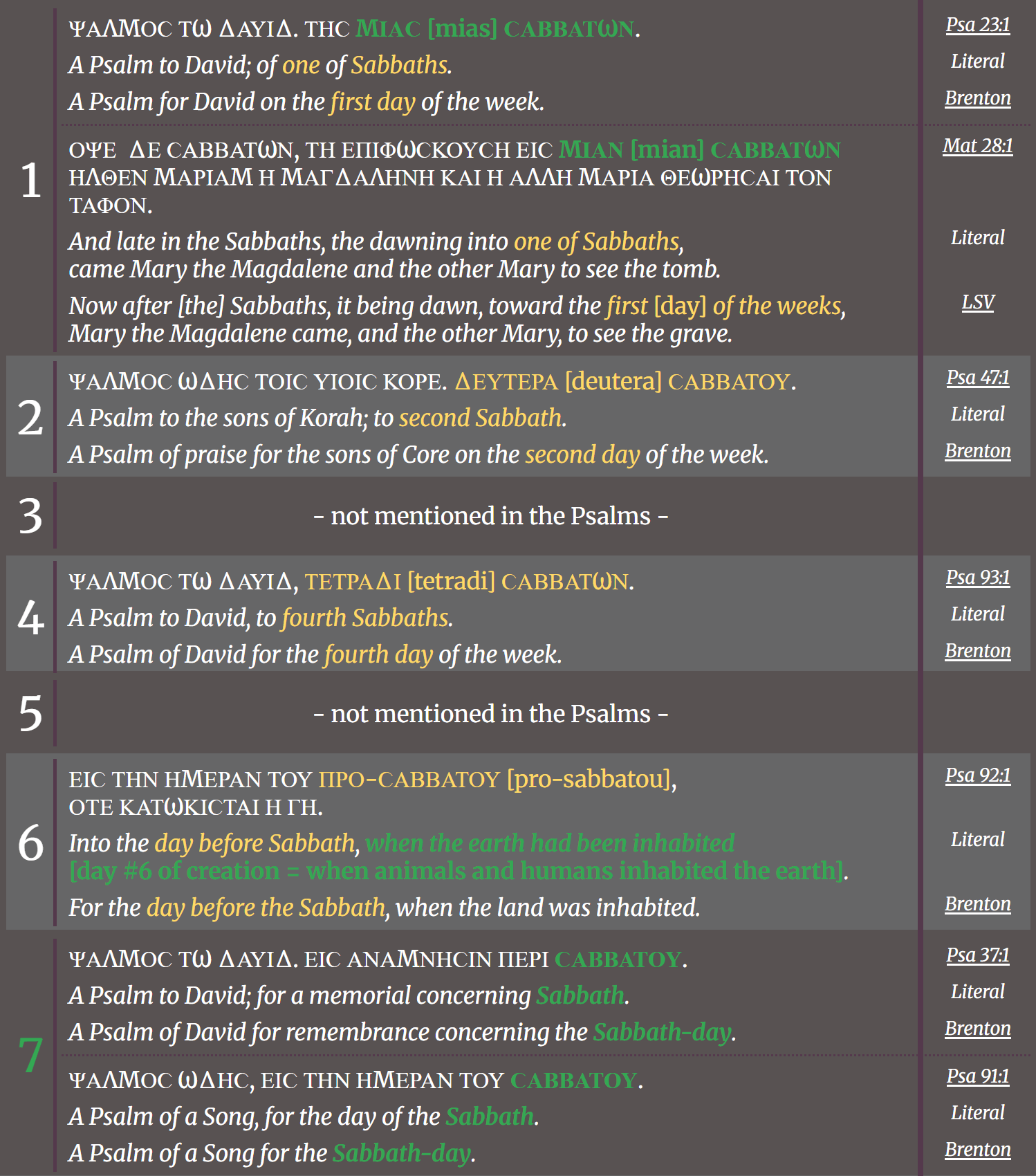A Biblical Week


Independently from the New Moon, weeks evolve around the Weekly Sabbath. The Sabbath is the anchor of every week and all other days are simply counted towards / following the Sabbath.
The biblical first day of the week is the modern Sunday as officially followed by ~55% of the world's population).

Created by Thomas Lorenz 〣 Data source: www.timeanddate.com
* It has to be noted that Nepal is probably the only country in the world which effectively works from Sunday-Friday and rests only on the Weekly Sabbath (biblical 6+1 instead of the pagan 5+2), although for rather unbiblical reasons. Israelis generally work from Monday-Thursday (5+2), and only some on Friday morning.

How is a biblical week being constituted?
* The biblical basis for the count is found in Mat 28:1 (ABP; literally "... and late in the Sabbaths, the dawning into (the) first (day) of (the) Sabbaths ..."). Important is here the the Genitive case of 'sabbaton', which adds the preposition 'of', resulting in a literal translation 'First of Sabbaths', 'Second of Sabbaths' and so on. The plural Genitive 'Sabbaths' in combination with a preceding number means a weekday.
** Modern names originate -directly- in pagan Roman gods to which the days were dedicated, e.g. 'Saturday' was dedicated to the Roman deity Sat**n (this in turn being equivalent to the Greek god Cro**s). The naming for the Portuguese Weekdays comes from the Ecclesiastical Latin.
What is the biblical basis for the definition of an ordinary week?
- Gen 1:5-31 provides us with the naming of days 1-6 "... And there was evening and there was morning, the first [G1520] day. [...] and there was morning, a second [G1208] day. [...] and there was morning, a third [G5150] day. [...] and there was morning, a fourth [G5067] day. [...] and there was morning, a fifth [G3991] day. [...] and there was morning, a sixth [G1623] day."
- Mat 28:1 defines the pattern for days 1-6 "... and late in the Sabbaths, the dawning into (the) first (day) of (the) Sabbaths [ΕΙC ΜΙΑΝ ϹΑΒΒΑΤⲰΝ = eis mian sabbaton = G1519 G3391 G4521 = on day one of Sabbaths (Week)], came Mary the Magdalene and the other Mary to see the tomb."

Who would have thought that the Book of Psalms contains one of the most remarkable definitions of the Biblical Week? While redacting the Greek Old Testament in its original UNCIAL letters, this remarkable pattern came to my attention, and it provides food for thought why those important introductions to the respective chapters are often cut short in many Bible translations. In the same manner King David fully affirmed the Weekly Sabbath being the seventh day and the day before IESOUS' resurrection, so we should do the same with an unbiased and open heart .

A simple way to prove that the Weekly Sabbath corresponds to the modern equivalent of Saturday, is to look how Sabbath (Saturday) is translated in other languages. More than 1 billion people use the word 'Saturday' today in their respective language, being tied to 'Sabbath' in the origin of the word.

The following study includes more details about a Biblical Week:


